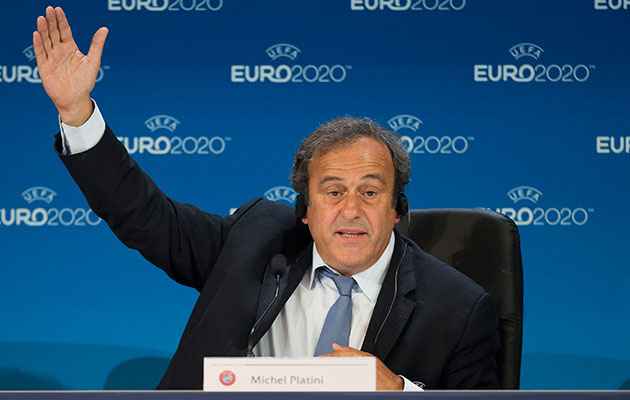Michel Platini has spoken of his desire to fight against injustice as he launches his appeal against a Fifa-imposed ban from football.
The Uefa president was suspended in December for eight years from all football-related activity over a “disloyal payment” of £1.3m made to him in 2011 which had been authorised by FIFA president Sepp Blatter. The pair were suspended for eight years, but both deny any wrongdoing and have launched appeals against their sanctions.
Arriving for his hearing with FIFA’s appeals committee in Zurich, Platini said: “I am not fighting for my future, I am fighting against injustice.
“If I had anything to reproach myself for, I would be hiding in Siberia in shame.
“I will look people in the eyes, I have done nothing and I fear nothing. I am 60 years old and I never had a red card on the pitch.”
Blatter is also appealing against his own eight-year ban, with his case to be heard on Tuesday.
If Platini fails to have his ban overturned, it will not be the end of the saga, with him expected to take a final appeal to the Court of Arbitration for Sport (CAS).
Platini continued: “Is it Blatter who put me in this situation? Not at all, he is in the same situation as me. Someone pushed the button and I will try to find out who.”
Uefa stated last month that it will not hold an election for its presidency until Platini’s appeals process has been completed. The Fifa appeals committee, which is chaired by Larry Mussenden, the president of the Bermuda Football Association, has the power to reduce, increase or overturn the ban imposed in December.
As well as the ban, Platini was fined 80,000 Swiss francs (around £54,000) by the adjudicatory chamber of FIFA’s ethics committee after being found guilty of breaching the world governing body’s code of ethics.
Both Platini and Blatter said the payment was made after the pair made a verbal agreement over work carried out by Platini on behalf of Fifa between 1998 and 2002. However, Platini was not paid until 2011 and neither party has satisfactorily explained why there was a nine-year gap between services rendered and payment being made.







